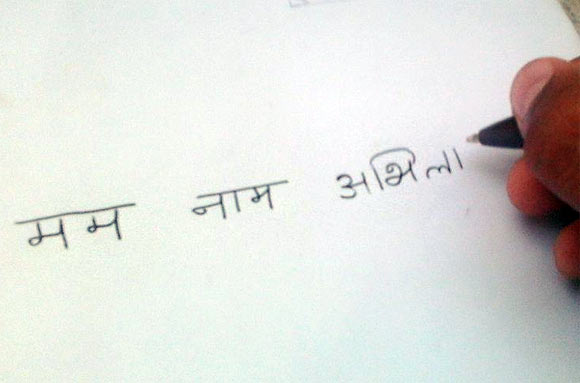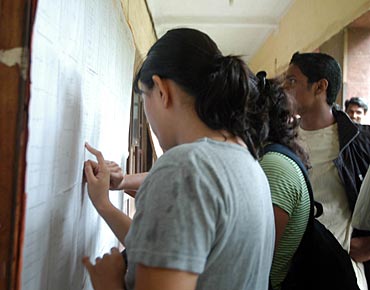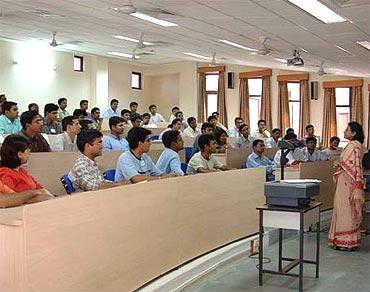 | « Back to article | Print this article |
Hindi, Sanskrit graduates: Explore multiple career paths!
The upgrading of undergraduate courses in Hindi and Sanskrit is opening up the job portals, slowly but surely.
Mudita Vetal was thrilled when she received a recruitment call from Akashvani for the post of Sanskrit newsreader.
While pursuing graduation in Sanskrit at Delhi University's St Stephen's College, she was often discouraged by friends on the choice of the subject.
They anticipated that after graduation, she would not get a job.
"Now, I'm pursuing my Master's alongside the job. The subject will offer me good career prospects, from teaching to translation. And who knows I might land up in a foreign university as a language professor," chuckles Mudita.
Please click NEXT to continue reading
Demand for language courses
The closure of admissions to Hindi and Sanskrit programmes after the first cut-off during DU admissions validates the demand for them.
Colleges like Hansraj, Daulat Ram, Miranda House and Kamala Nehru did not bring out a second cut-off list.
"With the escalating demand of Hindi and Sanskrit teachers, one can gauge the employment prospects. And after doing BEd or Master's, options are plenty," says Kanika Sharma, a Hindi graduate and now a government school teacher in Delhi.
Syllabus upgraded
These courses have been in focus for those who have a flair for Indian literature and language. Dr. Indra Mohan, HoD, Delhi Public School, Bokaro gives credit to changes in the course modules. "Earlier, students would do BA, MA and opt for teaching.
The new syllabus drafted is more vocation-oriented," says Dr Mohan.
"Introducing translation and Mass Communication as optional papers in the UG course, has helped in imparting additional skills," says Dr Sunita Durangal, Associate Prof, Daulat Ram College, Delhi.
Multiple employment opportunities for language graduates
Teaching: In CBSE syllabus-based schools in India, even in the Middle East, the UK and USA, Hindi is now taught as a compulsory subject at the primary level. This broadens the prospects for Hindi graduates in a big way.
Bank jobs: Institute of Banking Personnel Selection and other banks recruit Hindi language officers.
Interpreter/Translator: Hindi graduates are hired for content translation and proofreading.
Parliamentary jobs: Hindi graduates are hired for the post of parliamentary reporter and Hindi Assistants.
Media and mass communication: Ample editing, reporting and writing opportunities exist in television and print. Jingle and gag writing for advertising firms is an interesting career option. With the mushrooming of FM channels, radio is also a lucrative option.
The remuneration
For teachers, the remuneration is based on Pay Commission standards.
Translators and interpreters are paid in varying scales, and tend to get hired on a project-to-project basis. Government Language Officers (Rajbhasha Adhikari) or those with parliamentary jobs are paid in the range of Rs15, 600 to 39,100 per month along with perks.
"Thanks to the boom in Hindi media industry, students have begun to acknowledge the significance of studying the subject," says Professor Subhash Dhulia, Director, School of Journalism and New Media Studies, at IGNOU.


